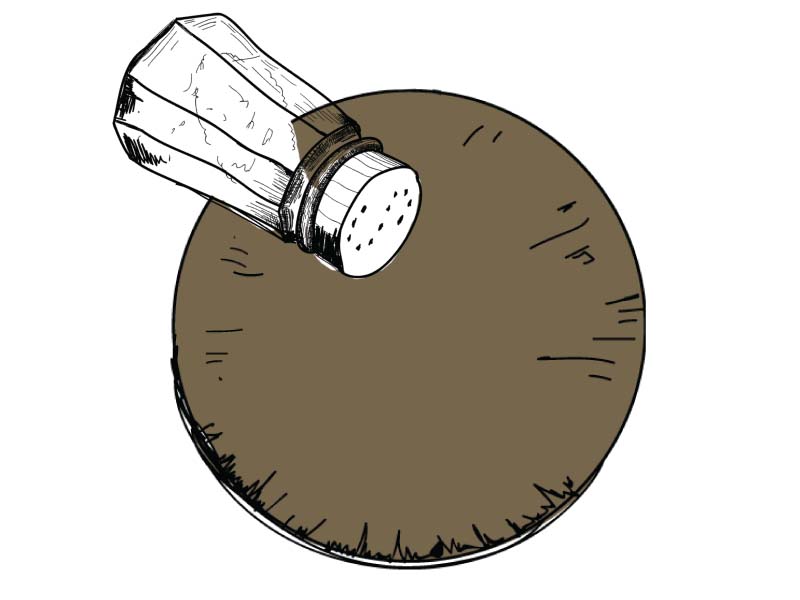
Too salty? You could be at risk of
Hypernatremia
An excess of salt in the body is known as hypernatremia. Symptoms include thirst, confusion or seizures.
Osteoporosis
A high salt intake increases the loss of calcium, which leads to weakening of the bones. Researchers suggest that there is improvement in bone density in post-menopausal women after they curtail their salt consumption.
Fluid retention
Sodium absorbs water and an excess of sodium can cause edema (swelling).
Kidney stones
Consuming too much sodium can raise blood pressure, which increases the amount of calcium one’s kidneys must excrete, leading to the formation of calcium stones.
Hypertension and cardiovascular diseases
Excessive salt intake along with stress, a diet high in saturated fat and sedentary lifestyles are risk factors for developing hypertension and heart diseases. Studies show links between cardiovascular diseases and excessive salt intake.
Stomach cancer
The exact link between excessive salt intake and cancer has not been established yet but some researchers say too much salt can cause inflammation and cellular changes in the lining of the stomach. The World Cancer Research Fund states that 14% of stomach cancer cases can be prevented by moderating salt intake.
Hold the salt, please!
Try eating more fresh products
Consuming vegetables and fruits that are fresh can alter your sodium intake. Artificial food, including canned or processed foods, bread, ketchup, sauces, pasta, cooked meats (sausages), pizza, cheeses, soups, popcorn or pretzels and fast food have high sodium content. One tablespoon of soya sauce, for example, has 1,000mg of sodium. Always check food labels for sodium quantities and if you’re cooking, try using low-salt recipes.
DASH
Dieting approvals to stop hypertension (DASH) trials began in 1994, aiming to draw links between excessive salt intake and hypertension. A DASH diet has lots of fruits, vegetables, low-fat dairy and a limited amount of red meat and saturated fats.
Salt substitutes
Sodium-replacement salts taste the same as table salt, but use potassium instead of sodium as a key ingredient. Potassium is said to lower blood pressure, but if you have kidney disease or are taking blood pressure medications, consult your doctor before increasing your potassium intake.
Test your taste
Try going salt-free and experiment with herbs and spices to add flavour to your meals. You can try fresh garlic, lemon juice, flavoured vinegar or salt-free herb blends such as cumin, nutmeg, cinnamon, tarragon or oregano.
Saadia Khan is a pediatric resident from Multan. She tweets @drkhanchc
Published in The Express Tribune, Sunday Magazine, March 15th, 2015.

















COMMENTS
Comments are moderated and generally will be posted if they are on-topic and not abusive.
For more information, please see our Comments FAQ